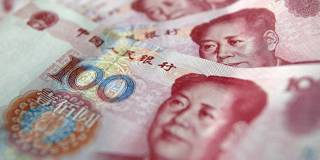A potential agreement could contain many “win-win” elements, notably concerning intellectual property rights and export subsidies. But pushing China to commit to a more stable exchange rate risks creating major problems when the next big Asian recession hits.
CAMBRIDGE – Will a possibly imminent US-China trade agreement exacerbate global business cycles or even plant the seeds of the next Asian financial crisis? If the eventual agreement – assuming there is one – forces China to hew indefinitely to its outmoded, overly rigid exchange-rate regime, then the answer may be yes.
Keeping the renminbi’s exchange rate stable against the US dollar would require the Chinese authorities either to match changes in US interest rates, or go through capital-control contortions to try to offset exchange-rate pressures in other ways. But China is simply too big and too global to adhere to an exchange-rate policy that is better suited to a small, open economy.
Moreover, neither approach to keeping the renminbi stable – maintaining interest-rate parity or applying capital controls – makes sense for an economy with business cycles that seldom coincide precisely with those of the United States. With its declining trend economic performance, overbuilt housing sector, and overleveraged regional governments, China will inevitably confront politically sensitive growth problems. When it does, the People’s Bank of China will need to be able to loosen monetary conditions without having to worry about supporting the exchange rate.

CAMBRIDGE – Will a possibly imminent US-China trade agreement exacerbate global business cycles or even plant the seeds of the next Asian financial crisis? If the eventual agreement – assuming there is one – forces China to hew indefinitely to its outmoded, overly rigid exchange-rate regime, then the answer may be yes.
Keeping the renminbi’s exchange rate stable against the US dollar would require the Chinese authorities either to match changes in US interest rates, or go through capital-control contortions to try to offset exchange-rate pressures in other ways. But China is simply too big and too global to adhere to an exchange-rate policy that is better suited to a small, open economy.
Moreover, neither approach to keeping the renminbi stable – maintaining interest-rate parity or applying capital controls – makes sense for an economy with business cycles that seldom coincide precisely with those of the United States. With its declining trend economic performance, overbuilt housing sector, and overleveraged regional governments, China will inevitably confront politically sensitive growth problems. When it does, the People’s Bank of China will need to be able to loosen monetary conditions without having to worry about supporting the exchange rate.